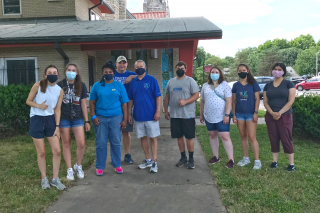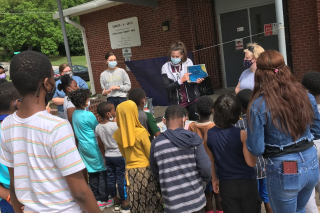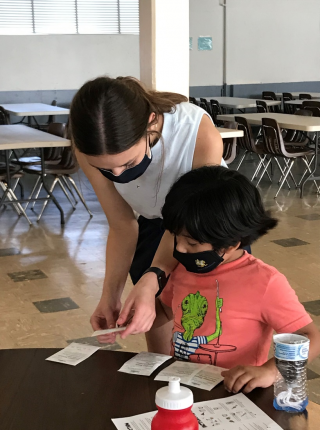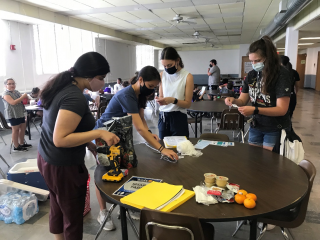EPA Interns and Water Staff Partner with KCK Community College for Trash-Free Waters Learning Event
– EPA Region 7 Feature –
EPA Region 7 interns and Water Division experts partnered with Kansas City Kansas Community College (KCKCC) for a Trash-Free Waters outreach event at the Kids on Campus summer camp in June 2021.
Elementary and middle school students heard from Region 7 employees on EPA’s role in keeping the air, land and water clean for the safety and health of the public, as well as how communities can play a key role in keeping the environment clean.
The EPA team focused on the Trash-Free Waters program, an important aspect of EPA’s work that students can see firsthand in their local environment. The program works to reduce and prevent trash from entering U.S. waters and the oceans.
During the event, students were given a basic understanding of the interconnected nature of how our water system works – in particular, how undisposed trash can eventually end up in the oceans and harm the environment and its inhabitants.
The students and the EPA team then conducted a trash cleanup around six community centers in Kansas City, Kansas, avoiding any trash that could be unsafe or unsanitary (such as glass or cigarette butts). After 10 minutes of collecting debris, the group regathered to discuss what was found. Region 7 employees led a discussion on the possible dangers the found trash could have on public health and the environment and the importance of properly disposing of trash.
The students were then split into two teams for a game. A tarp was used as a vertical barrier to divide an open area in two, and the teams assembled on either side. Trash was emptied on both sides of the tarp, and the students were directed to get rid of the trash by tossing it over to the other team’s side as quickly as possible. After a few minutes of throwing litter back and forth, the students quickly realized the lesson to be learned.
The game served as a simulated example to show how trash and litter is everyone’s issue, and how the “out of sight, out of mind” principle does not apply to the health of their environment. Region 7 employees then explained how to collect trash for disposal, instead of littering, in order to keep their community clean. Both student teams worked together to clean up the trash from the game.
“I think the kids got to learn how fun and important sustainability is,” said Joyeta Chowdhury, EPA Water Division intern. “Most importantly, I hoped they learned that even though they’re kids, they have a role to play, too. I think that’s what they enjoyed the most – being active participants in the activities, while also learning at the same time.”
The EPA team conducted one final activity, focused on the reusing and recycling of plastic water bottles, by first leading a discussion on the Three R’s: Reduce, Reuse, Recycle. Each student had been given a plastic water bottle from which they could drink during the previous activities. After the bottles were empty, Region 7 employees helped each student cut their bottle in half, drill a hole in the cap, invert the top half, and place it into the bottom half to create a reusable planter. A string was then pulled through the cap to act as a root to carry water from the bottom half of the bottle up to the plant, and soil and seeds were put into the inverted top half. After planting their chosen seeds, the students kept the planters so they could watch their plants grow, while also being reminded of how they can reuse everyday items.
“The kids definitely enjoyed planting and creating their own water bottle-potted plants,” said Kalea Chu, EPA Water Division intern. “They loved being able to pick what seeds they were planting, putting together the bottles, and getting to keep their very own plant.”
By interacting through games and activities, the students became more knowledgeable about EPA and its role in environmental protection, as well as their own role in safeguarding the environment in their own communities. Students learned how they can help keep our aquatic environment clean by collecting trash and using the Three R’s.
Learn more about Trash-Free Waters.




